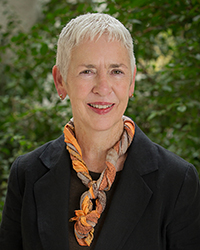Linda Berger

Linda L. Berger is the Family Foundation Professor of Law and has recently completed a term as Associate Dean for Faculty Development and Research at Boyd. She is also the Immediate Past President of the Legal Writing Institute and a nationally recognized leader in legal rhetoric and writing.
What's the most important thing you are working on right now?
My co-editors and I are preparing for a conference in May in Oñati, Spain, that for the first time will bring together the organizers of Feminist Judgments projects from around the world. Seven different groups in the United States, Canada, the United Kingdom, Ireland, Australia, New Zealand, and across Europe are working independently on projects in which lawyers, scholars, and even a few judges are rewriting court opinions on gender issues. The purpose is to explore whether the judicial reasoning process or the outcome or both would change if those doing the judging applied some of the methods and perspectives that have emerged from feminist and critical theory. For the first time at the Oñati International Institute for the Sociology of Law, organizers of the different projects will meet to compare and contrast their approaches and what they have found (Feminist Judgments: Rewritten Opinions of the U.S. Supreme Court, a just-sent-to-the publishers volume of rewritten tax opinions, and proposals-in-progress to rewrite opinions on reproductive justice, family law, corporate law, torts law, and employment discrimination. In addition, an upcoming issue of the Nevada Law Journal will include a Feminist Judgments Symposium collecting articles from a conference last October.
What have you read, listened to, or watched recently that has influenced you or your work?
The Collected Stories of Amy Hempel was published ten years ago, but I re-read selected stories every year or so. Hempel’s stories remind you of how much a writer can accomplish in a sentence. Hempel’s work is often heartbreaking and sometimes hilarious. Her use of language illustrates what she learned from being a journalist: "you have to grab readers instantly and keep them."
I’ve also been following #appellatetwitter, where lawyers, judges, and various legal writing experts share diverse views as well as practical and impractical advice on questions from font preferences to oral argument techniques. We often talk about encouraging conversation between practicing lawyers and academics, but this forum actually does that!